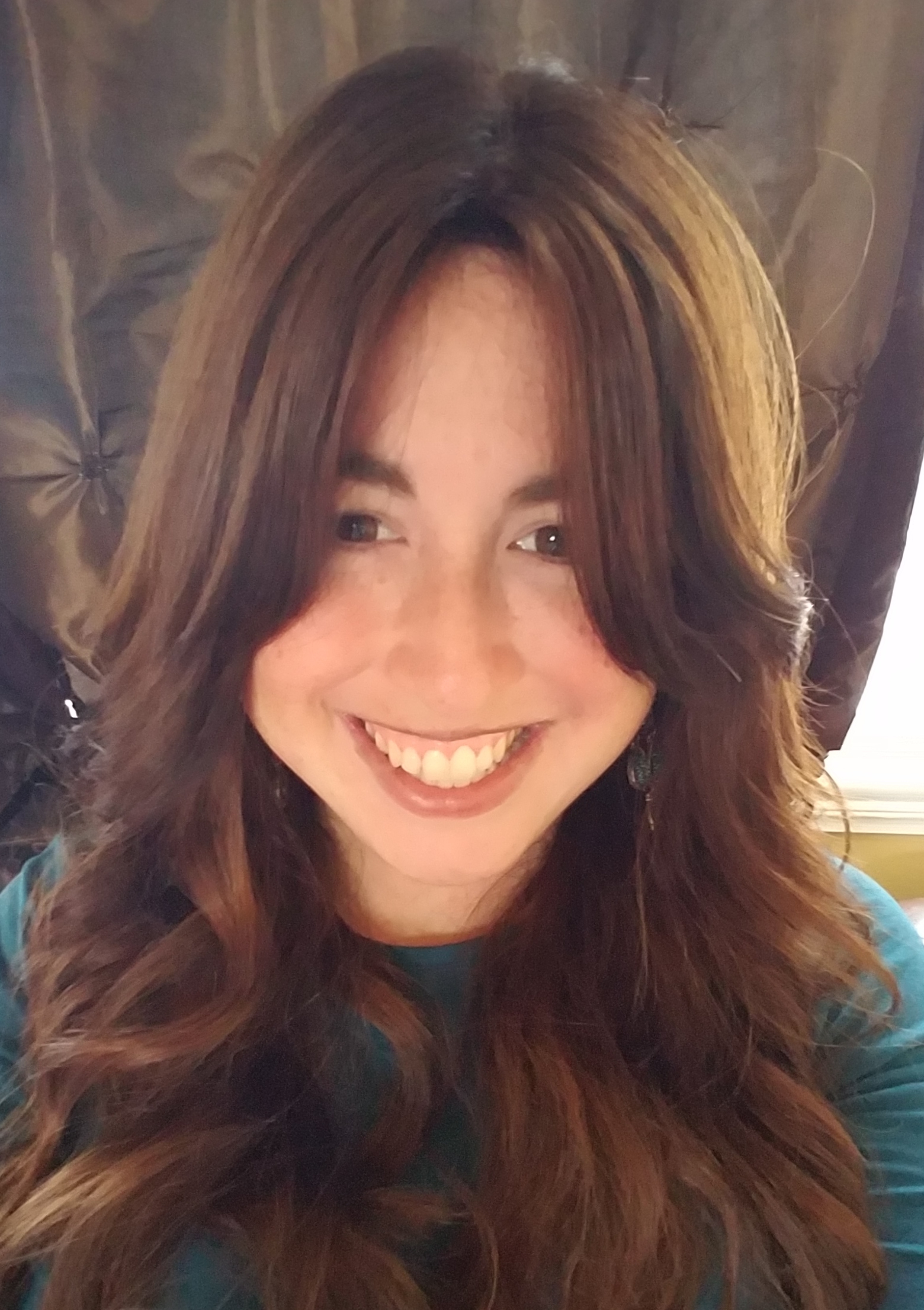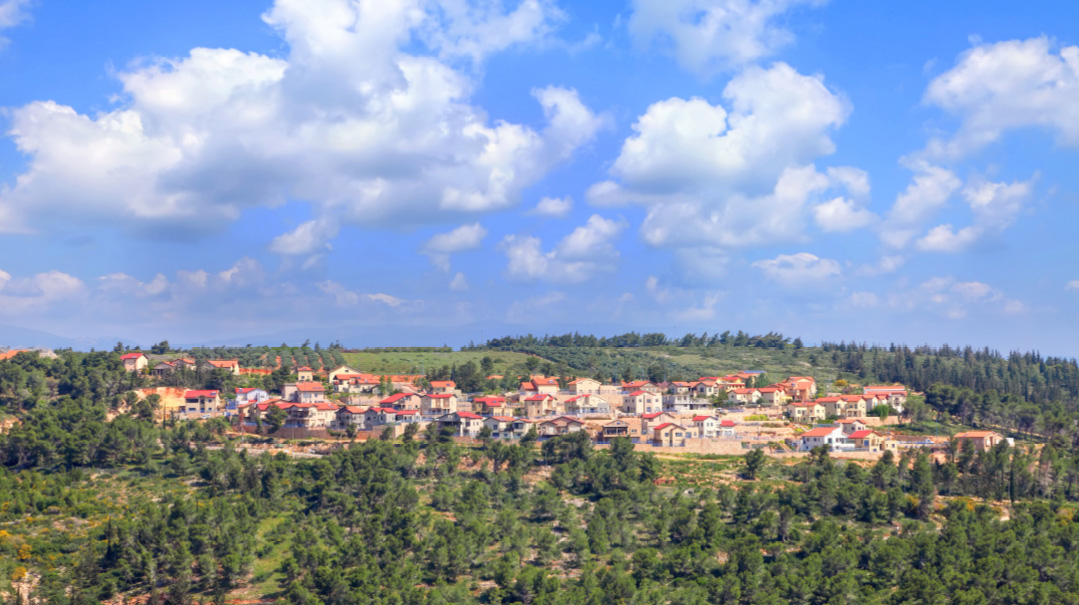Return to You

We left Israel for a short visit. We returned 15 years later

There are certain moments in life you rush through — and then spend the years afterward reliving in slow motion. Leaving our apartment for the last time in the small, close-knit yishuv we lived in right after shanah rishonah was one of those moments.
The catch is that when we left our apartment, I didn’t realize it would be permanent. Everything pointed to our return to that paint-chipped door three weeks later: There were the round-trip plane tickets, most of our worldly possessions patiently waiting for us inside, and my husband’s yeshivah schedule for the new zeman, complete with an all-star lineup of chavrusas.
But when those three weeks were over, that door remained closed, those possessions gathered dust, and the chavrusas found new partners. The weeks became months, and before we knew it, 15 years had passed.
It wasn’t until the summer of 2022 when, a lump in my throat and eyes full of tears, I finally came knocking….
My last morning in Eretz Yisrael began like many others that preceded it: battling morning sickness. I was expecting our first child, and the pregnancy was challenging my ability to function. But my brain was still working well enough to register that we were flying to America later that evening for Pesach break, and so I pushed myself to do the final packing.
A quick glance out the window mid-suitcase-stuffing convinced me that the pregnancy was now causing my eyes to play tricks on me.
Snowflakes!
Snow here in Nissan? Impossible!
I called my husband in a daze, and he confirmed there was a highly unseasonable snow predicted to fall on and off throughout the day, and that the one road to the airport from our yishuv was most likely going to close. We immediately called our airport driver to talk strategy, and he recommended finishing all last-minute preparations and monitoring the status of the road.
I hastily finished packing and went on “snowflake watch.” As a native Chicagoan, I found it laughable when the road was shut down that afternoon over an amount of snow that wouldn’t even slow down a Midwestern squirrel. But as the hours dragged on and the road remained closed, I began to panic.
“If this keeps up, we’re going to miss our flight,” I told my husband, as he walked home from yeshivah to decide on a plan of action. Our itinerary was already delicately split between our two families in Atlanta and Chicago, and a missed flight during one of Ben Gurion’s busiest periods could get complicated. “I think if the road opens at any time, we should immediately call the driver and get out of the yishuv as soon as possible, in case it closes again.”
Sure enough, the road opened for a brief window shortly afterward. We sprang into action, coordinating the driver, our suitcases, and our last-minute shutdown list. By the time we reached the airport, the road had closed again, and we realized how narrowly we’d made it.
The trip was a whirlwind of visiting soon-to-be grandparents, who beamed over my growing belly and showered us with love. Still, we longed to get back to our lives in Eretz Yisrael and to the apartment we called home.
But the baby wasn’t enjoying the traveling. From the first leg of our trip in Atlanta, pregnancy complications began. On the second leg of our trip, in Chicago, my old doctor graciously took me on as a patient, monitoring the pregnancy and making sure things were okay. She gave me the green light to fly back to Atlanta, but on the final day of our trip there, the complications worsened enough that I was sent to a high-risk OB. The doctor swiftly put me on bedrest in my in-laws’ home, and told me I wouldn’t be flying back to Israel for the remainder of the pregnancy.
My husband stayed with me for two months, as we hoped that advice would change, but when it didn’t, we were forced to change our plans. He drove me to Chicago to be with my parents and flew back to Israel to pack up our belongings. We decided he’d finish learning for semichah in America and continue to completion even after the baby was born.
Baruch Hashem, we had a healthy baby boy that September, and the story fell into a pattern of familiar tropes. Life got busy. More children joined our crew. Travel was expensive.
The days were long, but the years were short, and before we knew it, over a decade had passed. We’d been consumed by finishing graduate school, looking after our growing family, and by new jobs that made international travel impossible.
After all those years, we finally planned a family trip to Eretz Yisrael for that ben bechor’s bar mitzvah. And then corona hit, and our flight was cancelled. We regrouped and hoped to go for our eldest daughter’s bas mitzvah the following year, but coronavirus kept up its plot twists, playing “Open, shut them” with Israel’s border.
Finally, in February 2022, we bought a new set of plane tickets and decided we’d do whatever it took to make this the summer of our return.
So many people said to me: “Fifteen years since you’ve been there? Israel is a totally different country! You’re not going to recognize Yerushalayim.” “You’ve never been on the light rail? To this or that park or neighborhood? You’re practically strangers!” The more comments I heard along those lines, the more the feeling of being an outsider set in.
I confided in my husband, who was also fielding similar sentiments. “How can it be that we let it get so long that we now feel like strangers visiting Eretz Yisrael? That we don’t know how to get around on public transportation? That the neighborhood we’ve rented a vacation apartment in didn’t even exist when we lived there?”
We shared the sadness of opportunity cost, of lost time. We also shared hope for our trip, of the magic of showing our children Eretz Yisrael for the first time together and imprinting it on our collective heart as our true home.
I dreamed of the trip for months: all of the beautiful things we’d see, the adventures we’d have. Woven within were memories of my last moments closing that door to our home in the yishuv.
I told my children the story of the unexpected “snowstorm.” I told them how we’d all go back to that building in our old yishuv and take a picture together. I told them how life takes you on many journeys, and sometimes dreams and plans get delayed, but to never give up hope of fulfilling them. Three weeks can turn into 15 years if you’re not careful, but the important thing is to get up and go.
AT last, the day of the trip arrived. The flight was long, but the loving anticipation of reaching our destination relieved the tediousness. When we finally, finally touched down, my ten-year-old leaned over and whispered, “Mommy, you did it,” and I cried.
The trip was a feat of logistical acrobatics — as perhaps all family trips are — and it took us until the second week to make the long bus ride to our old yishuv. The hustle and bustle of crowded, construction-heavy Yerushalayim slowly gave way to the beautiful hills and quiet landscape of the place that had once been home.
The bus dropped us near a ridge of wildflowers. We walked the winding roads to our old street, and the years dropped away. Seeing all the old sights and homes filled me with joy. I showed my very Americanized children the “center of town,” with only a small makolet, post office, doctor’s office, and a shul in its square. We visited my husband’s yeshivah and the beautiful grounds surrounding it.
Finally, we reached the rows of identical-looking apartment buildings, and I thought again of our old home I’d loved so much, of all the memories frozen in time, without the closure of having shut the door on them of my own volition.
When we arrived at the block of apartments and walked down the stairs to the joint courtyard, my children looked expectantly at me and my husband to lead them to the iconic building they’d heard so much about, the symbol of our lives changing trajectory unexpectedly.
But neither my husband nor I could tell one building from another. He had a hunch that a certain building was ours, but I was completely disoriented. We hemmed and hawed for a few minutes, comparing various entryways, and in an anticlimactic moment of doubt, we asked a resident playing outside with her kids to take our family picture in front of my husband’s initial hunch.
To my husband, it felt all the same anyway: We’d returned to the general area, to the block of apartments themselves. But the uncertainty unmoored me, made me feel even more unfamiliar with a land that should have felt like home.
We spent several minutes chatting with our kids and some of the residents, when finally I looked toward the entrance of a particular building and felt a certainty in my bones — that was the one. I climbed the stairs straight to the top and there it was: the well-worn door with the peeling paint. It was this one; I was sure now.
I lifted a hand to knock, only to drop it to my side a second later. Who exactly did I expect to answer? An old version of myself? The newly married woman of 15 years ago who thought she’d be having a baby in Israel, who cheered on her husband as he learned toward semichah there?
I shed tears of an unknown variety. In that moment, I knew it had never really been about the door, or this particular apartment. The moment of leaving in haste from this location had become so emblematic in my mind and heart of a decision that had been taken from us, of a situation without closure, of letting home become a place where we were now strangers, that I’d put so much meaning into this one spot.
I exhaled the notions of what could have been and inhaled the wonderful 15-year streak of memories of a period that began at this very entryway.
Acceptance is a wonderful elixir.
I knew that the next three weeks exploring Eretz Yisrael, reacquainting ourselves with what we’d missed all those years — the new sights and sounds, the kedushah in the air — would be the real return home. I blew a kiss toward the door, and headed back down toward the voices in the courtyard that were my true home, wherever they may physically be.
For the the rest of the trip I felt elevated, as if a burden had been lifted from my shoulders. One by one my children each fell in love with Eretz Yisrael, the beauty and majesty of it — the real gift they were returning home with, rather than the requisite several pounds of gummies in our baggage.
When we boarded the plane to leave, my ten-year-old leaned over to me and whispered, “We did it.” This time, in the plural.
It was now home for all of us.
(Originally featured in Family First, Issue 816)
Oops! We could not locate your form.







